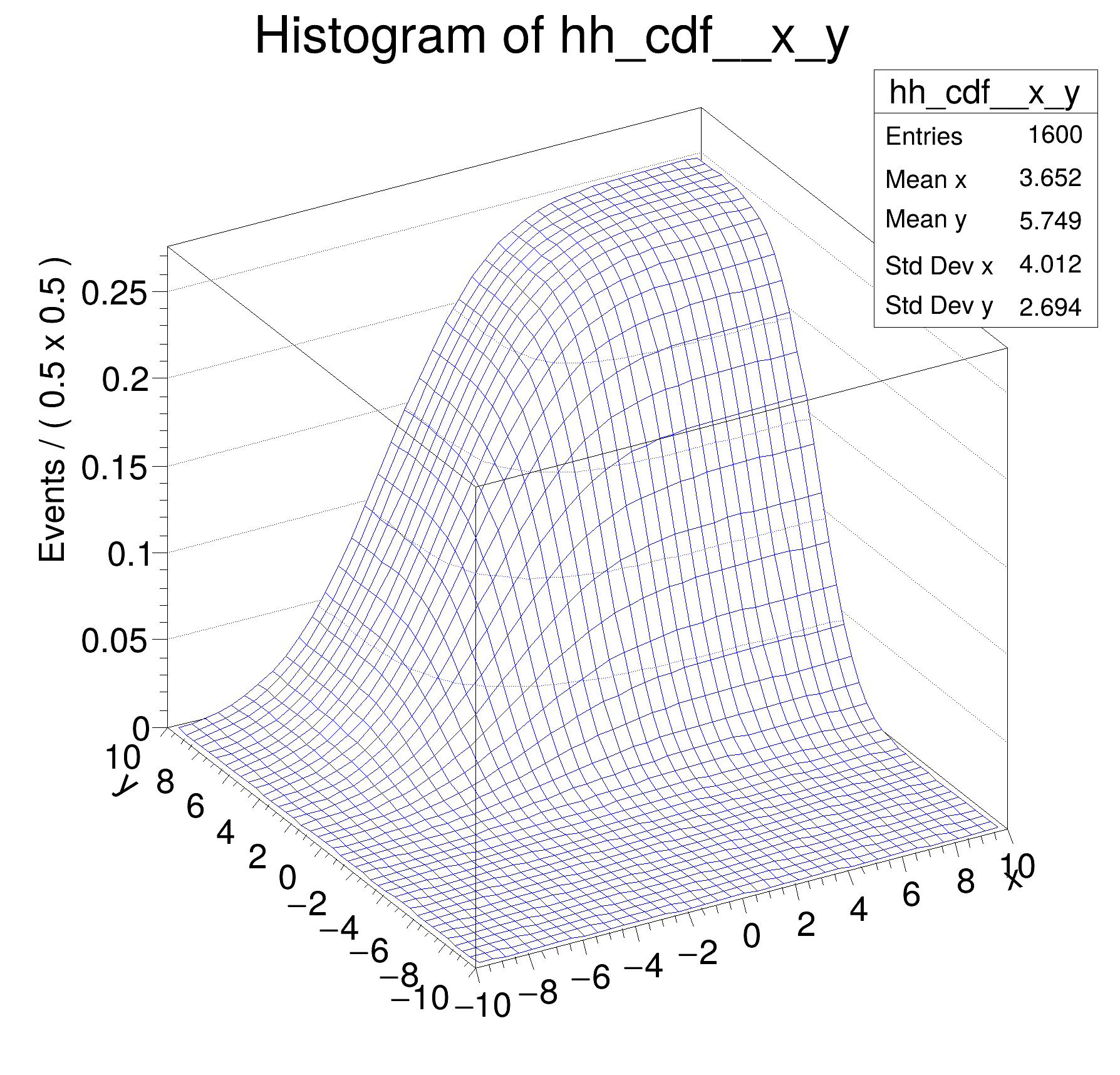

Multidimensional models: normalization and integration of pdfs, construction of cumulative distribution functions from pdfs in two dimensions
import ROOT
x_and_y = {x, y}
c =
ROOT.TCanvas(
"rf308_normintegration2d",
"rf308_normintegration2d", 600, 600)
ROOT::Detail::TRangeCast< T, true > TRangeDynCast
TRangeDynCast is an adapter class that allows the typed iteration through a TCollection.
gxy = 0.4856717852477124
gx_Norm[x,y] = 0.012933200957206766
gx_Int[x,y] = 37.552326516436096
gx_Norm[x] = 0.1068955044839622
gx_Norm[y] = 0.12098919425696865
[#1] INFO:Eval -- RooRealVar::setRange(x) new range named 'signal' created with bounds [-5,5]
[#1] INFO:Eval -- RooRealVar::setRange(y) new range named 'signal' created with bounds [-3,3]
gx_Int[x,y|signal]_Norm[x,y] = 0.5720351351990985
- Date
- February 2018
- Authors
- Clemens Lange, Wouter Verkerke (C++ version)
Definition in file rf308_normintegration2d.py.


